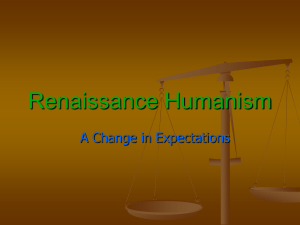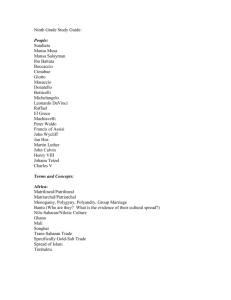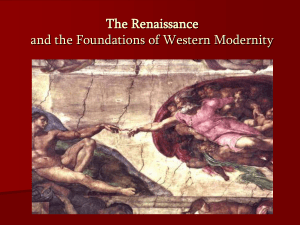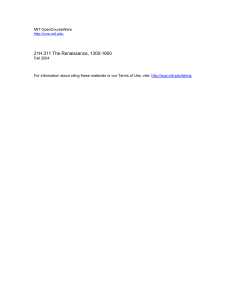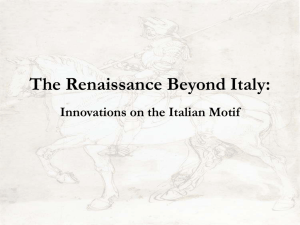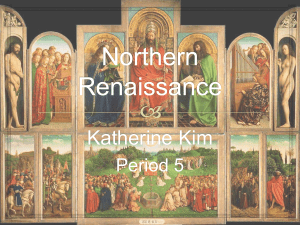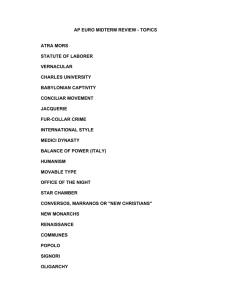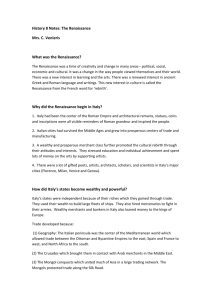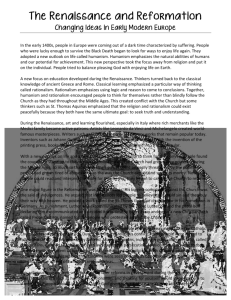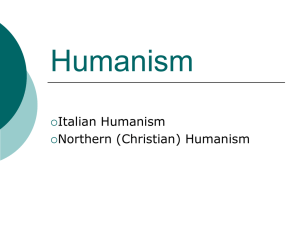Cold Text Standard MWH-1.2 It is essential for students to know: the
advertisement
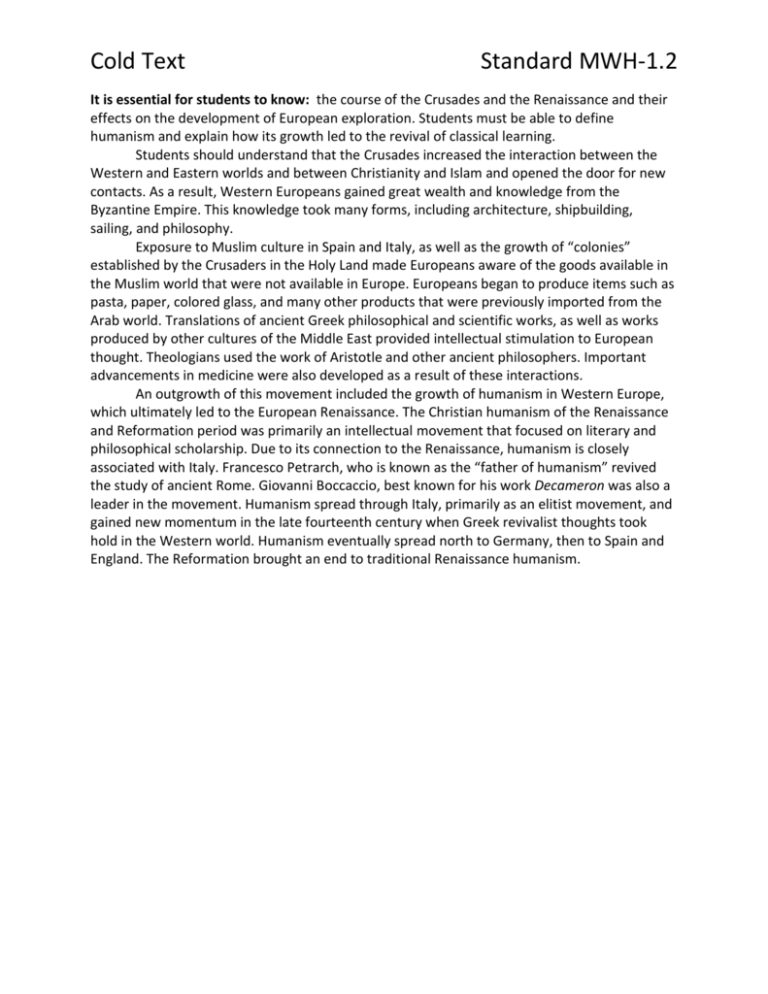
Cold Text Standard MWH-1.2 It is essential for students to know: the course of the Crusades and the Renaissance and their effects on the development of European exploration. Students must be able to define humanism and explain how its growth led to the revival of classical learning. Students should understand that the Crusades increased the interaction between the Western and Eastern worlds and between Christianity and Islam and opened the door for new contacts. As a result, Western Europeans gained great wealth and knowledge from the Byzantine Empire. This knowledge took many forms, including architecture, shipbuilding, sailing, and philosophy. Exposure to Muslim culture in Spain and Italy, as well as the growth of “colonies” established by the Crusaders in the Holy Land made Europeans aware of the goods available in the Muslim world that were not available in Europe. Europeans began to produce items such as pasta, paper, colored glass, and many other products that were previously imported from the Arab world. Translations of ancient Greek philosophical and scientific works, as well as works produced by other cultures of the Middle East provided intellectual stimulation to European thought. Theologians used the work of Aristotle and other ancient philosophers. Important advancements in medicine were also developed as a result of these interactions. An outgrowth of this movement included the growth of humanism in Western Europe, which ultimately led to the European Renaissance. The Christian humanism of the Renaissance and Reformation period was primarily an intellectual movement that focused on literary and philosophical scholarship. Due to its connection to the Renaissance, humanism is closely associated with Italy. Francesco Petrarch, who is known as the “father of humanism” revived the study of ancient Rome. Giovanni Boccaccio, best known for his work Decameron was also a leader in the movement. Humanism spread through Italy, primarily as an elitist movement, and gained new momentum in the late fourteenth century when Greek revivalist thoughts took hold in the Western world. Humanism eventually spread north to Germany, then to Spain and England. The Reformation brought an end to traditional Renaissance humanism.

